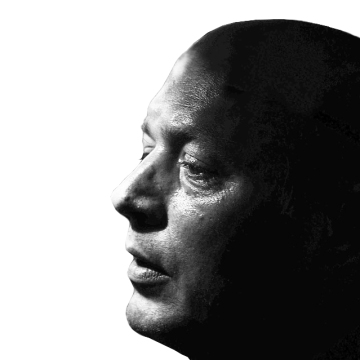Prelude at Annie’s
Trigger warning: those discomfited by descriptions of the female body need not read further.
I’m at an Annie’s, a foreign-managed Italian restaurant chain in Beijing. It’s become a trendy place as a consequence of locals’ worries over food safety at Chinese restaurants. There’s also the popularity of foreign food, as growing numbers of Chinese come back from trips to culinary heaven in Europe and discover Western and international cuisine to be actually pretty good.
Take this branch at the west gate of Chaoyang Park, for example, the original Annie’s (there are now nine of them). From when it opened in 1999 until a few years ago, it was mostly expats needing a bite to eat after picking up necessities at a neighboring supermarket for foreigners, Jenny Lou’s. Now, you often have to wait in line for a table, and almost all of the customers are Chinese. The staff have their plastic smiles and obsequious bowing down to an art form. They also serve generous portions, and it’s my third serious glass of wine that is giving me the inspiration to write the following.
Adjacent to me is a Chinese couple. Nothing unusual in that. We’re in Beijing. But they stand out. He is handsome, fit and trim in a smart suit and black turtleneck, around fifty. She is very attractive and also well dressed in a formfitting violet dress with a plunging V-neck; her incipient double chin suggests early thirties. I might not otherwise have noticed her, but her large breasts bend my gaze around like an elastic sling. We’re talking big. Oh, they’re real, all right. Boob jobs are rigid and immobile; they move with the body, not against it. Hers hang and swing freely. With each glance I steal they seem to get bigger—and more confounding. At least in the context. Chinese women as a rule don’t show off their body, a tradition as ironclad today as at any time in the past. The big-breasted in summertime can’t help but betray their assets, but it’s common in cold weather for young women to keep their winter coat buttoned up even in indoor settings (a legacy from when indoor heating was nonexistent), and don’t you dare invite them to make themselves more comfortable. As they get older they reveal incrementally more, until they’re going about braless in a T-shirt in retirement age because it no longer matters. Yet there are exceptions, and hers establish why it’s this fellow rather than any other that’s with her.
There was a time when foreign dudes might have winged the likes of her. There was a time when even I might have stood a chance. No longer. These days if you want a female Rolls Royce—beautiful and busty in equal measure—you need to be a male Rolls Royce—handsome and wealthy in equal measure. And no mere parvenu will do. It helps to be somewhat advanced in years (this is what still gives me a dwindling sliver of hope), with a calligraphy of wisdom and culture etched on the face. Taste and poise. A knowledge of wine, which he’s selected, though for her tastes. White wine in February. Women here often go for white, the way they prefer Sprite to Coke, or white to black iPhones. A gender thing.
They’re onto their second bottle of wine now. There she goes, running over to his side and wrapping her arms around him, a mammary expanding on his shoulder. A power couple, to be sure, but not a married couple. She’s too animated. Some kind of mistress, perhaps one in the making. Or maybe he doesn’t even need to stoop to a mistress. Women come to him for no-strings-attached fun. She’s clearly into him. Not the slightest acknowledgment of life outside their little bubble, not to mention any attentive males in the vicinity. She is 100 percent focused on him.
The wine is making her louder and more histrionic. I’m impressed, in the way I am with certain Chinese women of the bolder variety who drink, smoke cigarettes and make their opinion known to your face. I want to see what she’s like when they get to their third bottle of wine and I could draw things out further to this purpose, but that’s not my point here. I’m thinking about what she represents.
As my mind takes off into imaginative parabolas, the questions abound. Is this woman really focused only on him? Is her provocative dress just for his sake? Might she actually be enjoying the attention she is getting? Is she not incapable of revealing even more in this public setting and is held back only by social constraints? Meanwhile, what’s going on in the gentleman’s mind? Is he not also enjoying the spectacle and possibly partaking of her exhibitionist fantasies? Or are they of conflicting minds? Is he perhaps the volatile type, explaining why she dare not remove her eyes from him for a single second? Undoubtedly the latter concern is an obstacle for some. We’d best get our old friend the green-eyed monster out of the way at the outset.
The green-eyed monster
When you are brought up to think and behave in certain ways, you act accordingly because you don’t know anything else. Your parents and other adults around you repeat the same ideas thousands of times in your formative years, and you are compelled to believe them. This process never ends but goes on throughout life, as you continuously receive reinforcement of these conventions and pass the same on to others in turn, including your children. The process is robust and can thoroughly alter your behavior. You may now be a committed atheist but if you were to be thrust into a new environment of friendly believers, you would become a believer too, maybe not right away, but sooner or later, as the gentle yet inexorable summons of group coercion wore you down. Such is the power of socialization that the same process could equally turn you from a Christian into an atheist.
The ideology of monogamy and romance is an important component in society’s socialization curriculum. In this most universal and all-inclusive of religions—the religion of marriage—romantic love, sexual fidelity, and jealousy form the Godhead. For the vast majority, relations between the sexes are unimaginable outside this Holy Trinity.
It’s not just your family and your immediate social circle that makes sure you believe it. The Truth is hammered into you in the classroom, the church, TV, movies (whose plots typically center around a happy family), advertising, song lyrics in pop music, the plots of most operas and plays, magazines and novels, and now, the Internet (dating websites, etc.). A totality of established voices conspires to enforce a conventional morality and code of ethics. Once you are socialized into such a belief system, it is invisible and enveloping. You cannot perceive anything else, because you are absorbed into it and inhabit it and can’t see outside of it. That there might be alternative systems never occurs to you. Your system is the only system. It doesn’t need to make sense because it’s common sense.
Jealousy is a good example of such “common sense.” Talk to almost anyone, conservative or liberal, Christian or atheist, Chinese or American, and they’ll all tell you with great assurance that it is just one of those things, like desire, fear or anger, which is impossible to eradicate from human nature. “It’s natural to be jealous,” goes the refrain. You may be able to control your jealousy, as you control your anger, and too much of either is obviously not a good thing. But that everyone has an unlimited store of righteous jealousy waiting to be tapped is only common sense.
Back to my neighborly couple at Annie’s. Let’s suppose her man blows up at me for a completely trivial and unrelated reason, say, for implicitly criticizing his taste in wine by suggesting a different wine he might want to try, when all I wanted was to share a wine tip. You see, he has just come back from a tour of French chateaus and wineries and wants to be regarded differently from your average wine consumer. And let’s suppose he becomes even more dramatic and smashes his bottle of wine against the wall. You would quite rightly deduce he has anger issues and needs to work on them.
Now let’s suppose he reacts in like fashion after I favorably appraise his partner’s breasts, not overtly but with a quick glance and wink of my eyes. I mean no harm. I’m not gawking or leering at them, and he alone is the recipient of my discreet compliment. Still, it results in the bottle crashing against the wall. Or on my head. I hope you would again grant that he has anger issues and needs to work on them. Yet I suspect you’d also hedge this by apologizing for him. His behavior is somewhat understandable, you’d claim, since I appear to be challenging or threatening the rightful possession of his property. You could even argue he is preemptively acting to forestall any further approaches on my part. After all, he’s only responding in an appropriately manly fashion, the way any man could be expected to respond.
Here I invite you to shift your perspective 180 degrees to take in a new idea: not smashing the bottle of wine. There is nothing natural about jealousy. Like anger, it is a psychological problem, a neurosis, and one that is completely eradicable. In fact, jealousy is just a form of anger, a species of anger. But jealousy is unique among the neuroses in being the only one that is socialized, institutionalized and naturalized, rather than sprouting up as the haphazard psychological symptom of particular individuals. That’s why it seems larger than life.
If someone we know has anger issues, we don’t say, “it’s natural to be angry”; we say he needs to work on his anger. Anger management. But we don’t similarly speak of “jealousy management.” If someone becomes jealous, we don’t say he needs to “work on” it. We deem his jealousy a natural reaction to a cause—the discovery of a rival and a potential or actual infidelity. We not only grant him the right to be jealous, we encourage it. It’s okay if his jealousy knows no bounds. We even reserve a degree of forgiveness if he resorts to murdering his rival. Thus society penalizes “crimes of passion” more leniently than cold-blooded murder. Jealousy has society’s full backing.
Let’s imagine the reverse: if we were to justify all forms of anger except jealousy. We would be losing our temper all the time, all over the place. The murder rate would skyrocket as a result. But as for jealousy, there would be very low tolerance for it. We might even be quite relaxed about the sexual sharing of our intimates or spouses. Bizarre as that may seem, is our current conventionalized and institutionalized form of neurosis, namely jealousy, any less so?
Jealousy can never justify aggressive or hostile behavior. It’s a neurosis, pure and simple. Both of these hypothetical angry outbursts are identical and proceed from the man’s individual psychology.
The reciprocal gaze
Before we grant the lady an imagination copious and elaborate enough to indulge in liberatory fantasies, another obstacle stands in the way: the unfortunate fact that many women hate their breasts—and hate men for liking their breasts. It doesn’t matter what they look like. Once a woman turns against them, there’s no recourse. A host of reasons justifies it: They’re too small. They’re too big. They’re ugly. One is bigger than the other. They sag. I get stared at all the time. Men would like me if only I had big tits. Men like me only because I have big tits.
“Don’t you sometimes wish you were really, really flat?” said Sukey.
Sukey was a cute nineteen-year-old with big breasts I was once involved with years ago in Chicago. Sexually and intellectually precocious for her age, she worked as a nude model at an art school and was up-to-date on the latest contemporary fiction. Still, her comment put an end to the fun we almost had that night.
She had brought me over to her friend Kate’s place. We smoked some pot, which has a tendency to make people horny. Since I was currently training as a massage therapist, Sukey suggested I give them both a massage. They took off their tops and lay face down on the bed side by side. Things got off to an exciting start. Sukey, who was bi, started making out with Kate, kissing her, folding a leg over her and trying to pull off her pants. Kate’s breasts were as gorgeous as Sukey’s, but tragically, she wasn’t into it. The next thing I knew, for reasons I am still utterly unable to fathom and before I could do their fronts, the mood was wrecked and they called a halt to the massage. Thereupon for my benefit, over beer and cigarettes, resigned to their powerlessness to remove the hapless objects attached to them as they sat there on the bed, as though the price of my being allowed to enjoy the sight of them topless was a lecture, they poured out all their grievances about men.
They were not the only women who over the years pointed out how puerile and infantile, not to mention sexist and offensive, this obsession of mine was. I comforted myself with the knowledge I wasn’t the only one. The obsession applied to most men, including the intelligent and cultivated (Einstein apparently had a thing for Marilyn Monroe), even if they only admit it to themselves.
But it also occurred to me that women have their own mirror-image obsession. While they bemoan the sorry state of men who can’t extricate themselves from their childish fixation, they rely on this very fixation to ensnare Mr. Right, carefully hoarding their assets to let them accrue maximum potency until the unveiling before the chosen one. Indeed, a hot babe endowed with a significant bust is lucky enough; she who knows how to deploy it strategically is in control of her destiny. Yet she is utterly reliant on the cooperation of men to appreciate it. She feeds off their obsession, nurtures and energizes it. The consequence of her participation in these patriarchal rites and rituals is that she is every bit as enslaved to her breasts as men.
True, women hoard their assets for another reason: they are at the receiving end of the intrusive male gaze. The way some describe it, every moment out and about is fraught with danger, as they emerge into their daily jungle of staring predators.
From my male perspective, I would say it’s more complicated than that. With a bit of imaginative empathy, any man is capable of seeing his own gaze as women see it. Once he learns how to see himself through women’s eyes, he can be motivated to curtail his gaze. Believe it or not, most men already do this, which is why those who do gaze stick out all the more. If you really think no man can refrain from “raping me with his eyes,” conduct an experiment the next time you’re in a café (not a bar, where gazing is normative), braless if you dare, with your cellphone stopwatch at the ready, timing every male’s glance at your chest. You’ll find that the gazers are in the solid minority, and few will be so rude as to stare for more than a moment or two.
Let’s delve a bit more into the psychology of gazing: how the gaze operates at the subliminal, or more exactly the biological level. What the gaze really represents, at bottom, is the desire to see the whole, not a part of the person. It is a shared act of honesty demanding a mutual unveiling. The gaze thus signals the frustration when the unveiling isn’t reciprocated. Whether or not you’re beautiful isn’t the point. I want to see your breasts, however unsightly, small or flat, because I want to see all of you. I want to see your breasts for the same reason I want you to take off your sunglasses the first time we meet so I can see your eyes. And I have no problem with you wanting to see all of me. Naturally, we can’t undress in public and can unveil only up to a point, but the urge is there nonetheless. What we can do, and do as a matter of course, is gaze. I call this the reciprocal gaze: my gaze is indeed an invitation for you to unveil, and I expect you to return my gaze for the same purpose.
Why can’t women too become active gazers and gaze back at men? I have seen female strangers bounce their eyes from mine down to my crotch and back again. Was I upset? I will be upset when I get to the age where they stop doing that.
The male gaze falls into two types. First, there is the proverbial male gaze, the sense of power in manipulating a woman with his eyes, fixing her in place to show her who’s in control. Undoubtedly there are many men who do this, including those who may not even realize they are doing it. But oglers, catcallers and harassers aside, most men—at least those of the polite, cultivated variety—when they gaze at all do so subtly and fleetingly. They would assume, or hope, you didn’t particularly notice or mind, or you’d at least consider that their motive in gazing was aesthetic.
This brings us to the second reason men gaze, at the breasts in particular. You may notice in your café experiment that some men gaze but without being too obnoxious about it; in lieu of a direct, bald stare, they steal brief glances. They don’t want to appear rude but something is compelling them to keep looking and they can’t seem to help it. These men are not trying to dominate or control you but are drawn to your breasts as sheer objects of beauty. If these gazers want to fix you in place it’s just for a moment. They know they can’t have you, but they want to burn your image in their mind for memory’s sake.
If you’re skeptical whether this “aesthetic” gaze, as I call it, is anything more than the brute male gaze dressed up in a frilly excuse, let’s get back to my earlier point that some women actually enjoy the attention. Not only are there women who do not seem all that bothered by the male gaze, they may seek it out. For every woman who hates her breasts, there is one who loves hers. For every man who pines after a woman’s body, there is a woman who also pines after a woman’s body (as many have confided to me). For every woman who hides her boobs under bulky clothing, there is a woman who displays as much as she can get away with, or would if she felt safe to do so. For every woman who can’t stand men looking at her, there is a woman who is secretly thrilled to be the object of such attention.
A woman I once dated with a magnificent bust related to me how one summer day when she was out on the street in a halter top, a dude passing by remarked, “Great tits!” This predictably pissed her off, yet she admitted to me that her more modestly endowed friend she was with rejoined, “I wish some guy would say that to me!” Another anecdote: I was sitting in a Second Cup café in Banff, Canada, next to a table of three attractive Asian female tourists who seemed only casually acquainted (they were speaking English with Japanese and Korean accents). One of them was so stunningly attractive, with ample breasts, it caused the one sitting across from her to suddenly reach over and squeeze them. I wasn’t in on the joke and don’t know what motivated the delectable act, but they seemed to find it funny and graced me with a laughing glance.
A new type of greeting
Let’s imagine another, more pleasant fictional scenario at this same Annie’s restaurant in which I manage to chat this attractive couple up. There’s no reason why I couldn’t do so right here and now, my Chinese is good enough, but I lack the conman personality to pull it off. Plus things wouldn’t stand a chance of playing out the way I wanted them to, however friendly they happened to be.
So here’s what happens in this alternate, utopian reality. After a few minutes of chitchat we introduce ourselves. Naturally, I shake hands with the gentleman first. But instead of taking the lady’s hand, I defer to her. In one smooth practiced motion she pulls her dress off her shoulders, releases her breasts to view and gives them a little swing. Receiving my expected nod and smile of acknowledgment, she then tucks them back in.
To the initiate, the sight must be startling: like a pair of guillotined heads plopping into the basket at the same time. But I’m used to it. We’re all used to it since everyone does it. It’s called etiquette. And it accomplishes something important and socially necessary. Because they don’t represent the woman herself but something extraneous to her (“Can’t you see beyond my boobs to the real me?”), yet nonetheless overwhelming and in the way, why not get the elephant out of the room at the outset and clear the air? Then, with the big bloated bag of stress and desire punctured and expelled, and the world now aright, we can get back to the business of conversation without skipping a beat, considerably more relaxed and at ease, the breasts virtually forgotten.
Fat chance of that ever happening goes the objection: the idea is impractical on numerous grounds. No woman, no matter how proud she is of her breasts, could stand the leering, or cheering, of every man in the room. The more suspicious among them would be lining up to meet her. Fending off male paws would be annoying in the extreme. Some might follow or stalk her. The routine would become a major, intolerable hassle.
Let me counter these objections first of all by pointing out that there are many unusual forms of greeting around the world. Even the weirdest varieties are culturally relative, and it is only from our parochial perspective that they seem bizarre to us. New types of greeting can catch on and be adopted. For instance, I am your typical Anglo-Saxon from the American Midwest. When I was growing up, it was unheard of for people barely acquainted to bear-hug each other (much as guys would have welcomed a plush female chest mashed against them) or—God forbid—plant kisses on each other’s cheeks. It would have been as awkward and strange as the old genteel custom of bowing and kissing a lady’s hand. The bear hug is now de rigueur. Is it then so difficult to imagine a novel form of greeting that doesn’t involve any physical contact or touch at all but merely the momentary sight of the breasts?
If we are openminded, we accept the great variety of human customs for what they are, neither superior nor inferior to our own, and hold them in due respect. The Japanese avoid eye contact in conversation, even upon first meeting. It’s not coldness but just the way it’s done; to engage in more than split-second affirmative glances is rude. In some Muslim countries, not only are women fully veiled, including their face and eyes, you’re unlikely ever to have the chance to meet one, with laws constraining their appearance in public; to greet a woman is itself a taboo (this, along with female genital mutilation I admit not much sympathy for).
At the other extreme, African men customarily caress a desired woman’s palm upon first handshake, frankly indicating their lust. That’s nothing compared to some American Indian tribes, before their way of life was upended by the European conquest. The common practice of “sex hospitality”—the offering of the host’s wife to a male guest for the night—was a privilege extended to the first White pioneers. I think you can appreciate that next to this extraordinary custom, which really existed and is not some libertine’s utopian idea, my proposal is quite modest.
Given, you suggest, the unfeasibility of breast greetings in a public environment, which makes them viewable not just to you but to all manner of strangers who happen to be around, let’s at least move it to a private space, where only the intended person is present. Thus if the couple found you to their liking, they might invite you for a second, more intimate encounter, dinner at their home for example, where the unveiling could take place in safe and relaxed circumstances.
We seek to adopt the most efficient, pragmatic and elegant approach. As the theory of Occam’s Razor advises, why unnecessarily complicate things? Why would a couple want to invite a man over to view his wife or girlfriend’s breasts when his motive might be insincere, his only reason for taking up the offer, rather than a friendly interest in them both? Why increase the suspense when the whole point is to decrease it?
No, the breast greeting must be done publicly and at the outset, performed unconditionally for all, hovering strangers included. The only challenge is to get the practice to catch on and spread. If everyone did it and understood how to do it, i.e., acquired the etiquette, it would be normalized. Women could safely expose themselves knowing surrounding men would be fully accustomed to the sight. Exposed breasts would be so common as to be passé. The sight of women’s nipples would be no more noteworthy than men’s.
I might add that this constitutes the long-established approach to nudity in northern European countries (Scandinavia, Germany, etc.), where many families go nude at home, join friends and strangers naked in the sauna, and take bare breasts at public beaches and swimming pools for granted. It’s been observed that you can always identify the North American women at European beaches, as they are the only ones keeping their bikini tops on. But there is a key difference from toplessness at the beach, where it all hangs out and the sight of so many boobs palls after a while. With the breast greeting, they are only momentarily in view. It’s the anticipation that electrifies the encounter, while simultaneously returning things to equilibrium upon their unveiling.
Still, if enough women did it, they might indeed bring things full circle and accomplish what the feminist movement has been trying to all along: male boredom with the breasts. At long last, we would attain to a state of social relations so advanced and free of sexism that the female body would no longer be the site of arousal. Men would routinely avert their gaze not out of politeness but indifference. Men would look at you the way gay men do. Not that we would necessarily prefer to live in a society shorn of all desire, but we would at least have arrived at a measure of genuine sexual equality. The universal display of the naked breasts would short-circuit men’s obsession, nip it in the bud.
Or would it? I fear no matter how commonplace the practice became, breasts will always retain their magical power. Women as well would demand it. Even as their unveiling became ubiquitous, it would always carry a delightful shock. But a balance will have been struck: we would be able to take in their sight with perfect equanimity and unruffled poise.

Courtesy of Jack Guard
* * *
Like this post? Buy the book (see contents):
paperback
Kindle
Related posts:
The question of breeding (why foreign men get the “ugly” Chinese girls)
My lovely little oriental doll: On yellow fever
Categories: Erotics















If one can not feel love one can not feel jealousy. If one can not feel jealousy one can not get angry. Basic biology shared by most of the animal kingdom. Wishing to change what is arguably a hard-wired human trait may just be the whimsical machinations of a wild breast-crazy dude—-sitting in the corner—whimpering whilst the rest of the baby wolves happily suckled themselves into a blissful state.